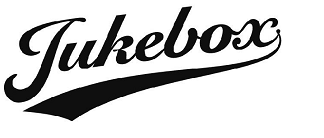Gerecht EU: Afdoening zonder beslissing nu het merk is ingetrokken
Gerecht EU 4 juli 2013, zaak T-589/10 (Just Music Fernsehbetriebs GmbH tegen OHIM/France Télécom) - dossier
 |
 |
Het resultaat van afdoening zonder beslissing is dat de beslissing van de oppositieafdeling geen effect (meer) heeft. Meer specifiek ex artikel 58(1) zin 2 van regulation 207/2009 heeft het hoger beroep een opschortende werking en heeft een beslissing van de oppositieafdeling enkel effect als er niet (tijdig) beroep is aangetekend of wanneer een beroep door de kamer van beroep is afgewezen. Daarvan is hier geen sprake.
Nu het oudere merk definitief is herroepen en dat de beslissingen van het OHIM al geen effect hebben, wordt de zaak afgedaan zonder beslissing. Een beslissing zou geen voordeel geven voor de verzoekster. Iedere partij draagt de eigen kosten en betalen ieder de helft van de kosten van het OHIM.
35 In the present case, in the light of the definitive revocation of the earlier mark, it must be noted that, as OHIM and the applicant stated in their answers to the written questions posed by the Court, the mark for which registration was sought by the applicant will be registered both where the contested decision is annulled by the Court and where there is a finding that there is no need to adjudicate, despite the decisions of OHIM bodies rejecting that application for registration.36 The finding by the Court in the present case that there is no need to adjudicate would have the result that the decision of the Opposition Division and the contested decision would not take effect. More specifically, in accordance with the second sentence of Article 58(1) of Regulation No 207/2009, appeals filed at OHIM have suspensive effect. Accordingly, a decision from which such an appeal lies, such as a decision of an Opposition Division, takes effect only when no appeal has been lodged at OHIM in the form and within the time-limits prescribed in Article 60 of Regulation No 207/2009 or when such an appeal has been definitively dismissed by the Board of Appeal. However, the present case, where the Court finds that there is no need to adjudicate, does not concern either of those situations, given that the contested decision has not taken effect either. It is clear from Article 64(3) of Regulation No 207/2009 that the decisions of the Boards of Appeal take effect only as from the date of expiration of the period referred to in Article 65(5) of Regulation No 207/2009 or, if an action has been brought before the courts of the Union within that period, as from the date of dismissal of such action. The present case is not concerned with either of those two situations, given that the Court finds that there is no need to adjudicate on the present action (see, to that effect, order in real,‑ QUALITY, paragraph 26 above, paragraph 23; see, to that effect and by analogy, order in Case T‑10/01 Lichtwer Pharma v OHIM – Biofarma (Sedonium) [2003] ECR II‑2225, paragraph 17, and order of 11 September 2007 in Case T‑185/04 Lancôme v OHIM – Baudon (AROMACOSMETIQUE), not published in the ECR, paragraph 22).
37 It follows from the foregoing that, in the light of the definitive revocation of the earlier mark and the fact that that the decisions of OHIM bodies have no effect where the Court finds that there is no need to adjudicate, a judgment of the Court on the substance of the case is not likely, if successful, to procure an advantage for the applicant. The Court therefore finds that there is no longer any need to adjudicate on the action for annulment brought by the applicant in accordance with its application contained in the documents of 23 February 2012 and 11 January 2013.
Op andere blogs:
MARQUES (Juxebox v. Juke box : Not just music in General Court)



























































































